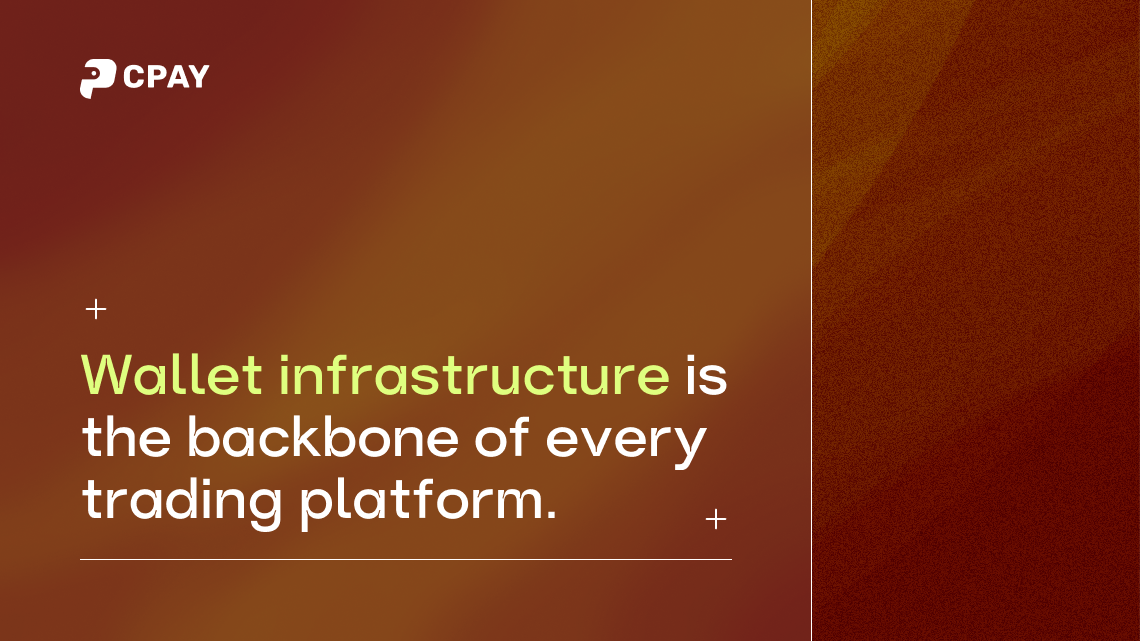Many exchanges and wallet providers have emerged in the ever-expanding crypto landscape, catering to the rising user demand for innovative avenues to spend, exchange, and secure their crypto assets. This advent has introduced an array of choices for crypto enthusiasts to manage their assets.
Nonetheless, the overwhelming variety of crypto wallets might be challenging when deciding on the most suitable set that aligns with your distinct crypto usage pattern. In the following sections, we'll dissect the diverse wallet types available in the present market, assisting you in making a more enlightened choice.
What is a Crypto Wallet?
A cryptocurrency wallet is a software application that allows individuals to store and manage their digital assets. As its name suggests, it is used for holding, sending, and receiving cryptocurrencies like Bitcoin, Ethereum, etc. A Multi-Wallet is analogous to a physical wallet, but digital wallets store cryptographic information, such as keys, instead of physically holding money. Unlike traditional physical wallets, crypto wallets don't store currency. Instead, when a transaction is made, the wallet interacts with a specific blockchain, allowing users to send money or conduct a balance check. This interaction takes place through the keys mentioned earlier.
Understanding crypto wallets requires grasping two critical terms: public keys and private keys. The public key is similar to a bank account number you share with others to receive funds. In contrast, the private key can be likened to your ATM PIN – a secret number that allows you to access your funds.
.png)
So, what are crypto wallets used for? Primarily, they are used to storing and manage a user's private and public keys, interact with various blockchains to enable users to send and receive digital currency and monitor their balance. You must use a cryptocurrency wallet if you want to use any cryptocurrency.
Purpose of Crypto Wallet
Cryptocurrency wallets serve as more than just a safe for your digital assets. They offer a multitude of other features that enhance the whole cryptocurrency experience.
1. Transactions
At their most basic, crypto wallets are used for conducting transactions. You can send, receive, and manage your cryptocurrencies. Whether you want to purchase goods and services or trade digital assets, you'll need a wallet to execute these transactions.
2. Integration with Exchanges
Most crypto wallets can integrate with cryptocurrency exchanges. This is especially true for custodial wallets, where the exchange provides the wallet service. This integration enables quick and convenient trading of your assets.
3. DApp interaction
Some wallets let you interact with decentralized applications (DApps). This feature brings you closer to decentralized finance (DeFi), allowing you to lend, borrow, earn interest, and more within your wallet.
4. Participation in Blockchain Governance
Many wallets allow users to participate in the governance of the underlying blockchain by voting on proposals. By owning a specific cryptocurrency in your wallet, you can have a say in shaping the future of the network.
How do Crypto Wallets Work?
Crypto wallets leverage cryptographic mechanisms, specifically keys, to send, receive, and manage cryptocurrencies. In a broader sense, these wallets don't store cryptocurrencies, as digital currencies don't exist physically but are recorded as transactions on the blockchain. Instead, these wallets store private and public keys.
A public key is a string of alphanumeric characters generated from a private key through a mathematical algorithm. This public key is shared with the world (hence public) and is the address where others can send cryptocurrencies. It can be thought of as the equivalent of a bank account number.
A private key, on the other hand, is similar to a PIN used to access and manage your bank account. The private key is a secret key that allows you to access and manage your digital assets. Keeping your private key safe and secure is crucial because losing it means losing access to your cryptocurrency. Furthermore, if someone else gets a hold of it, they gain access to your cryptocurrency.
When you wish to send cryptocurrency, your wallet software will create a digital signature by processing the transaction with the private key. This ensures the security of the transaction and proves that you are the owner of the funds and have authorized the transaction.
The transaction is then broadcasted to the network to be included in the blockchain. Miners will verify it using the corresponding public key to check the digital signature. If it checks out, the transaction is deemed valid and included in a block. Once the transaction is confirmed, the receiver's wallet balance updates to include the new amount.
Remember, while using a crypto wallet, you are your bank. Hence, security practices like keeping your private key confidential, backing up your wallet, and enabling two-factor authentication (if available) are essential.
Types of Crypto Wallets
Various crypto wallets cater to different needs and provide various security levels. They range from highly secure physical wallets to more convenient, easily accessible mobile and web wallets. Let's break down the different types of crypto wallets:
.png)
Cryptocurrency Hot Wallet: Mobile and Web Wallets
Hot wallets refer to cryptocurrency wallets that are connected to the internet. They include mobile and web wallets, often preferred for their convenience and user-friendly interfaces.
Mobile wallets are smartphone applications that allow users to access their crypto on the go. They are highly convenient, especially for daily transactions and quick trades.
Web wallets, on the other hand, are accessed through internet browsers. They are ideal for beginners due to their ease of use. However, they are susceptible to online threats, and therefore users should ensure they use secure internet connections when accessing their wallets.
Desktop and Hardware Wallets: Types of Cold Wallets
Cold wallets are offline wallets and are considered more secure than hot wallets. They are ideal for storing large amounts of crypto due to their enhanced security features.
Desktop wallets are downloaded and installed on a PC or laptop and can only be accessed from the device on which they were installed. They provide a high-security level, especially if the device is not connected to the internet.
Hardware wallets are physical devices that securely store a user's private keys offline. These wallets can store multiple cryptocurrencies and protect the keys in a secure offline environment, immune to hacking attempts.
Physical Storage: Paper Wallets
Paper wallets are a type of cold wallet. They involve printing out your cryptographic keys on a piece of paper and storing it in a secure location. They are extremely secure since they are completely offline and cannot be hacked unless someone touches the paper. This type of crypto wallet is a safe bet for long-term storage or investment. However, the loss or destruction of the physical paper can result in losing access to your digital assets permanently.
Custodial vs. Non-Custodial Wallets
The key distinguishing factor among these options is the trade-off between convenience and security and the responsibility to safeguard a wallet's private keys.
In the case of a custodial wallet, an intermediary party, such as a cryptocurrency exchange, retains the user's private keys, employing them to "authorize" transactions initiated by the owner. These custodial wallets favor users who prefer not to engage deeply with security measures and are not overly apprehensive about entrusting a third party with their private keys. However, due to threats like cyber-attacks or even the risk of an exchange declaring bankruptcy (which has occurred in the past), it's generally ill-advised to store large quantities of cryptocurrency in a custodial wallet.
For seasoned crypto users or those who desire full control over their private keys, non-custodial wallets are frequently preferred. These wallets are also referred to as "self-custody" wallets. In the case of a self-custody wallet, the owner is solely accountable for the secure keeping of their private key. Non-custodial wallets liberate users from depending on a third party for account security, but they demand significant self-reliance. If a private key gets lost or compromised, the user's funds can be siphoned off or become irrecoverable.
%20(1).png)
Which crypto wallet should I choose?
Choosing the right cryptocurrency wallet depends on several factors, including personal needs, technical proficiency, and risk tolerance. Here are some considerations to help guide your decision:
- Security vs. Convenience: If security is your top priority, and you're comfortable with technical details, a non-custodial wallet like CPAY Mobile Crypto Wallet App could be a good fit. This allows you to maintain complete control over your private keys. However, this means you are solely responsible for the security of your keys. If you prefer convenience and are okay with a third-party controlling your keys, a custodial wallet (like those provided by Coinbase or Binance) may be more suitable.
- Amount of Cryptocurrency: Hardware wallets are generally recommended due to their heightened security if you're dealing with a large amount of cryptocurrency. Mobile or desktop wallets might be more practical for smaller amounts or day-to-day transactions.
- Frequency of Transactions: If you frequently transact with your cryptocurrencies, a hot wallet (one connected to the internet), like a desktop, mobile, or web wallet, can be more convenient. If you rarely transact and consider your cryptocurrencies as long-term investments, a cold wallet (like a hardware or paper wallet) that remains disconnected from the internet can offer more security.
- Type of Cryptocurrencies: Different wallets support different types of cryptocurrencies. Ensure that your wallet supports the cryptocurrencies you own or plan to own.
- User Friendliness: Some wallets are more user-friendly than others. If you're new to cryptocurrencies, you might prefer a wallet with a simple, intuitive interface.
- Privacy: If privacy is a major concern, consider wallets that do not require personal information to set up and use.
- Backup & Recovery: Consider the wallet's backup and recovery options. If you lose access to your wallet, how easy is it to restore?
Remember that using different types of wallets for different purposes is perfectly okay. Keep a small amount of crypto in a convenient, hot wallet for everyday use and the bulk of your assets in a more secure, cold wallet for long-term storage. It's important to regularly update any wallet software to ensure the highest level of security and functionality. Always remember that the security of your assets ultimately depends on your actions and precautions.
Sum Up — Cryptocurrency Wallets Explained
Before choosing a crypto wallet, it's critical to introspect and evaluate your preferences. Reflect on aspects such as user-friendliness and security, determining the level of importance you assign to each. Consider the level of accessibility you desire for your cryptocurrency and the degree of security you're prepared to relinquish for this accessibility. This forms the fundamental equation most individuals use to select the most suitable wallet.





.png)


